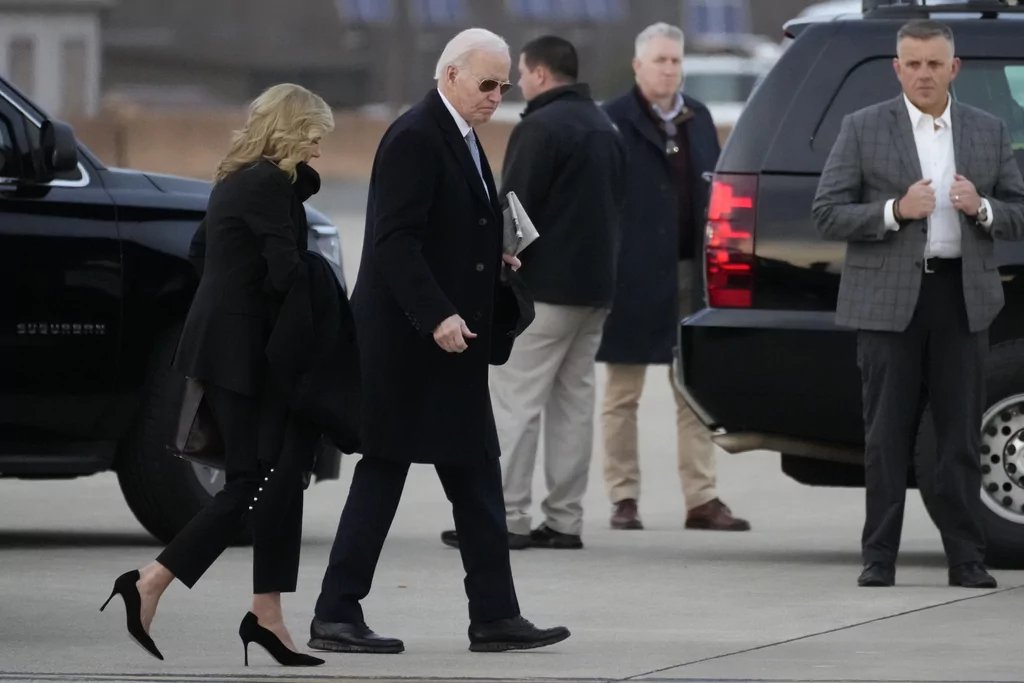

President Joe Biden campaigned on a return to normalcy on the world stage, but his term will be remembered for a catastrophic withdrawal of Afghanistan, as well as two major wars on the world stage, leading critics to dismiss his foreign policy as “reactive, weak, and overwhelmed.”
‘MY WORD AS A BIDEN’: JOE DAMAGES PUBLIC TRUST WITH FLIP-FLOP HUNTER PARDON
The Biden administration has spent the better part of the past 2.5 years subsidizing not only Ukraine’s efforts to expel Russian invaders but Israel’s increasingly unpopular war against Islamic militants, now spilling into multiple Middle Eastern neighbors.
On top of these new wars, the U.S. withdrawal from Afghanistan allowed the Taliban a virtually unchecked path back to power, culminating in a suicide bombing at Hamed Karzai airport in Kabul which resulted in the deaths of 13 U.S. service members, as well as 169 Afghan civilians.
The White House declined to comment on this story, but multiple former Biden White House officials told the Washington Examiner that Biden’s inadequate foreign policy could prove a gift to President-elect Donald Trump once he’s sworn in next year.
“If Trump were to come in and quickly change the game in Ukraine or somehow get Israel to stop its genocide of the Palestinian people, that would basically be the nail in the coffin for President Biden’s legacy, I think,” one former Biden White House official claimed somewhat dejectedly.
Jake Sullivan, Biden’s national security adviser, defended the president’s policies during a recent interview with NPR.
“Diplomacy is one thousand days of failure and one day of success. You have to keep working it tirelessly to ultimately produce a positive outcome,” Sullivan said of Biden’s efforts to secure a hostage exchange and permanent ceasefire between Israel and Islamic militants. “I do believe a positive outcome is possible, not just before the end of the administration, but even before the end of this calendar year, I can’t promise that it will happen. I won’t predict to you that it will happen, but I will say that there is that potential.”
Sullivan also cautioned Trump, who has met with Ukrainian President Volodymyr Zelensky multiple times since the 2024 election was decided, against removing Ukraine’s “leverage” against Russia.
“Ukraine needs leverage to get a good deal, and leverage means continued American support and a clear signal to Putin that if he’s not prepared to do a good deal, the United States is going to continue to have Ukraine’s back,” he added in response to Trump’s vow to end the war in Ukraine on his first day in office. “If we pull the rug out from under Ukraine, right out of the gate, that is not going to set the conditions for a good deal.”
Biden had previously made a number of Middle East policy missteps, dating back to his lengthy career in the Senate.
In 1991, then-Sen. Biden opposed Operation Desert Storm, former President George H.W. Bush’s military operation aimed at driving Iraqi forces out of Kuwait.
A decade later, Biden, fresh off the 9/11 terrorist attacks, voted to greenlight former President George W. Bush’s invasion of Afghanistan. Two years later, Biden again backed Bush’s invasion of Iraq.
And during his first stint in the White House, Vice President Biden was reportedly one of the few senior administration officials cautioning former President Barack Obama not to carry out the raid that eventually killed Osama bin Laden.
Matthew Burrows and Robert Manning, distinguished fellows at the Stimson Center, a foreign policy-focused think tank, argue that the president’s general “democracies vs. autocracies” mindset is oversimplified and left America incapable of ending this latest outcropping of foreign conflicts, and possibly careening toward another global war.
HOW BIDEN IS TRYING TO SHAPE HIS LEGACY WITH JUST MONTHS LEFT IN OFFICE
“By many measures, the ‘Rules-Based Order’ (adhered to à la carte by the United States) is decomposing. The unmentioned debacle of the bungled exit from Afghanistan in August 2021 was a blow to American credibility. Today, the world is in a state of polycrisis— interacting crises cascading downward and unraveling the global order,” they wrote in November. “This approach places the international system on a trajectory closer to where it was before World War I or during the 1930s when the international order was fraying.”
The Stimson fellows added that Biden’s inability to end either the war in Ukraine or Israel’s military operations makes the U.S. appear “reactive, weak, and overwhelmed, with no discernible strategy.”





